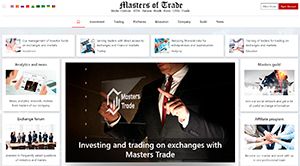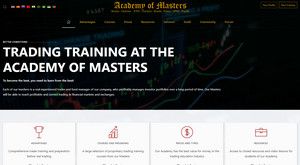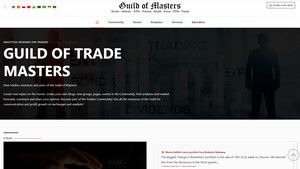Failed US-Japan Tweet Talks, Stock Market News, and Geopolitics

Latest stock market news
• Yesterday, the US stock market was covered by sales again. Stock indices fell by 2-3%. Only the oil stock sector grew.
In the morning, stock index futures grew by 0.5%. Tomorrow is a day off in the US. Therefore, today is the expiration of monthly options.
• U.S. President Donald Trump unexpectedly scuttled tariff talks with Japan, sending markets into a sigh of relief that disaster had not happened. Japan became the first major trading partner to open direct talks with the United States, a test for more than 70 countries seeking better terms on the massive tariffs that Trump announced and then abruptly shelved this month.
Trump said he had made "great progress" in the talks, which he attended with top Japanese negotiator Ryosei Akazawa, who gave few details in remarks to reporters just before the Nikkei opened trading in Tokyo, although he said the currency issue was not discussed in Washington.
• Nasdaq futures rose 0.6%, pointing to a recovery from Wednesday's 3% drop, while EUROSTOXX 50 futures fell 0.3%, marking a third straight decline for the pan-European index.
The U.S. dollar rose against the euro and the yen following U.S.-Japan trade talks but remains on track for a fourth straight week of losses.
Safe-haven demand pushed gold to a new all-time high of $3,357.40 an ounce in Asian trading. U.S. Treasuries, whose safe-haven status has been eroded in recent weeks, were steady in Tokyo, with yields little changed.
• The top 10 stocks now make up 37.7% of the S&P 500, the highest concentration in 60 years - JP Morgan.
JP Morgan has warned that the S&P 500 could fall another 26% to 4,000 points.
Analysts call this a "worst-case scenario" if the economic and geopolitical situation worsens.
• Powell: Fed ready to provide dollars to global central banks in case of their shortage
Cryptocurrency is becoming more popular. Legal basis for stablecoins is a good idea.
I think banking regulations on cryptocurrencies will be relaxed.
• Commerce Secretary Howard Lutnick said he hoped Trump's tariffs would help end "the army of millions of Chinese people who are screwing tiny screws into iPhones" so that manufacturing could move to the U.S. and be replaced by robots.
• Hermès (HRMS) has overtaken (LVMH) Louis Vuitton to become the world's most valuable luxury brand with a market cap of €248 billion versus LVMH's €244 billion.
LVMH's weak Q1 2025 earnings - a drop in sales of fashion, leather goods and alcohol - sent its shares tumbling 7%, wiping out $23 billion in market value.
• Trump's new tariffs could cost U.S. semiconductor equipment makers more than $1 billion a year - Reuters
The largest U.S. chip-making equipment makers - Applied Materials, Lam Research and KLA - could each suffer losses of about $350 million a year.
• ASML reports worse than expected.
Revenue: €7.74 billion (forecast: €7.78 billion); EPS: €6.00 (forecast: €5.79)
The company reports low margins and a pessimistic guidance for Q2.
ASML shares fell 7%.
• Japan's government pension fund said it had changed its benchmark for foreign shares, excluding Chinese stocks from the domestic market.
• TSMC (TSM) Raises U.S. Manufacturing Prices by 30% Due to New Trump Tariffs High costs at its Arizona plant have forced U.S. customers like Apple, AMD, and Nvidia to quickly reorder and ramp up volumes at TSMC's U.S. plant. With limited capacity for 4nm chips in Arizona, demand has surged, allowing TSMC to raise prices.
• Reuters: Trump tariffs derail Tesla's (TSLA) plans to launch new Cybercab and Semi models.
Tesla was willing to import parts from China when the tariff was 34%, but that became impossible when Trump began raising it.
Tesla's (TSLA) first-quarter California registrations fell 15%, industry data show.
The company's quarterly sales worldwide fell 13% to their lowest in nearly three years, amid an aging product lineup and backlash against Musk.
• BTC dominance continues to grow. There are no conditions for a trend reversal yet, the macro factor works in favor of Bitcoin. Altcoins suffer from billion-dollar unlocks, lack of demand and weak charts against BTC.
The US may use Bitcoin to refinance government debt.
• Investment company VanEck presented the idea of BitBonds - a new instrument with which the US could raise $110 billion, buy more BTC and partially refinance the $14 trillion national debt.
• Chinese authorities are selling off confiscated BTC bitcoins - RTRS.
• Retail investors refuse to give up. The sell-off in the U.S. stock market was met with record buying from retail investors, according to Vanda Research.
Specifically, net buying of +$3 billion on Thursday marked a new daily record since our data began in 2014.
• Lyft to enter European market with $200 mln acquisition of FreeNow - Reuters
• OpenAI has added an image library to ChatGPT for all users. The feature is already live in the iOS app and will be coming to the web version soon.
The tool will be especially useful for those who regularly create images with ChatGPT and want to easily find their previous work.
• Hertz Global (HTZ) jumped 56% after Pershing Square Holdings announced a 4.1% stake in the company.
Strong short-term interest in Hertz could contribute to increased volatility in the stock's performance.
• Hewlett Packard Enterprise (HPE) is in the spotlight after Elliott Investment Management took a $1.5 billion stake in the company.
BofA Securities analysts maintain a Buy rating on HPE, citing its strong valuation and potential for improving cash flows.
• Elliott Management's investment is seen as a strategic move to unlock value in the company.
• Abbott Laboratories (ABT) reported mixed results for the first quarter of 2025, with revenue missing expectations despite profit growth.
The company reaffirmed its profit outlook amid uncertainty over tariffs on MedTech and Pharma products. Abbott plans to invest $500 million to expand its R&D capabilities in the U.S.
ABT shares rose 2.8%.
• Target (TGT) faces a ratings downgrade from Goldman Sachs, which cites the retailer's vulnerability to a decline in consumer spending due to its focus on discretionary goods.
• United Airlines (UAL) shares initially rose 6% after first-quarter profit beat expectations. UAL shares ended down 0.01% amid broad market selling pressure.
The airline's core economic growth and international revenue offset a drop in domestic revenue. However, management warned that the recession could weigh on profitability in coming quarters.
• Vale (VALE) reported a 4.5% year-on-year decline in iron ore production due to adverse weather conditions in Brazil.
Iron ore sales nevertheless rose 3.6% due to inventory gains. Vale's copper output beat expectations, helped by strong results in Canada and Brazil.
VALE shares fell 1.4%.
• Ecolab (ECL) announced that it will introduce a 5% trade surcharge on its solutions and services in the US effective May 1, 2025. This surcharge is intended to offset rising raw material costs due to changes in trade policy.
• Panama City Council voted to become the first government agency to accept cryptocurrency payments. Residents will be able to pay taxes, fees, fines and permits using BTC, ETH, USDC and USDT.
• Gold prices break $3,300 an ounce barrier to hit record highs. Gold fund inflows hit record highs this year - BofA/EPFR data.
Long gold is the most crowded trade among global fund managers - BofA April survey.
• Bessent: US ready to reduce energy exports from Iran to zero. Has China been asked?
• Another ECB rate cut expected. The European Central Bank is expected to cut interest rates for the seventh time this year in Frankfurt today to support an economy made even more fragile by Trump's tariffs.
• As British supermarket chain Sainsbury's reports its annual results ahead of the Easter weekend, all eyes will be on whether it will follow industry leader Tesco and forecast a profit decline this year.
• Chipmaker shares will be back in focus after a tough session on Wednesday following a warning from ASML, as investors analyze earnings forecasts from industry leader TSMC to gauge the health of the sector.
• In the US, American Express, Blackstone and Truist Financial are set to report first-quarter results after a string of relatively strong results among US financial companies that bucked a downward trend on Wall Street.
Key events that could impact markets on Thursday:
- Philadelphia Federal Reserve releases manufacturing outlook for April.
- IMF Managing Director Kristalina Georgieva speaks on the global economy.
- The ECB holds a monetary policy meeting in Frankfurt, followed by a briefing by ECB President Christine Lagarde.
Current Fundamental Reviews
• The WTO has reduced its forecast for growth in global merchandise trade in 2025 to -0.2% from +3.0%. In 2025, the decline could even be -1.5% if trade misunderstandings worsen.
• The US Treasury sees little chance of reaching tariff agreements in 90 days.
"If you put China aside, we have 14 major trading partners. We're on a fast track to getting the process [negotiations] going for 14 major partners, most of whom have very large [trade] deficits. Will we have binding documents in 90 days? Not likely." - Bessent.
• China has replaced its top trade negotiator amid a protracted row with the United States, with Li Chenggang replacing Wang Shouwen as the new vice minister of commerce and a key figure in international negotiations.
• Xi Jinping intends to modernize the free trade agreement between China and ASEAN countries - Xinhua.
ASEAN is an association of ten countries in Southeast Asia, which includes: Indonesia, Malaysia, Singapore, Thailand, the Philippines, Vietnam, Laos, Cambodia, Myanmar, Brunei. These countries are important trading partners of China and key players in the region.
• Rubio, Witkoff to visit France to discuss Ukraine, Iran, tariffs - Politico. The US wants to persuade more than 70 countries to limit trade ties with China in exchange for lower tariffs - WSJ.
• New US sanctions target Iranian oil tankers - Reuters
• The US has lifted sanctions on Antal Rogan, Viktor Orban's right-hand man accused of corruption, in a move seen as a sign of rapprochement between Washington and Budapest - France 24 At the same time, the US has called on Hungary to be "vigilant" over rising investment from China, warning that it could run counter to US strategic interests. - BBG
Orban will have to make a tough choice between the US and China. And the EU could benefit if Orban cancels the project with Chinese carmaker BYD.
• The US State Department announced the cancellation of “unnecessary” grants to foreign countries – in particular Belarus, Moldova and other post-Soviet states.
• EC President Ursula von der Leyen:
- The West as we knew it no longer exists...
- Europe must actively shape the new world order.
- The EU has realized that it needs to strengthen its defense, economy and global position.
- Allocating 800 billion euros for military potential was unthinkable just a few years ago.
• The blow to the German economy from US tariffs can be compared to the consequences of the start of the war between Russia and Ukraine.
Donald Trump's actions caused the largest collapse of the index of the Center for European Economic Research (ZEW) in Mannheim since March 2022, which is called a barometer of expectations for the German economy.
Several German banks refused to invest in the country's defense for ethical reasons.
A joint declaration on such a refusal was signed by eight German banks: GLS-Bank, KD-Bank, BiB Essen, Bank für Kirche und Caritas, DKM - Partner für Kirche und Caritas, Evangelische Bank, Steyler Ethik Bank and PAX Bank. None of them are on the list of the largest in Germany, but GLS Bank and KD-Bank were recently recognized as the most stable in Germany by the Stiftung Warentest Institute.
• India plans to scrap import taxes on ethane and liquefied petroleum gas (LPG) from the US as part of tariff talks - RTRS
US Vice President Vance to meet Indian Prime Minister Modi in India.
• Americans' expectations about their personal finances in the coming year have fallen to their lowest level ever.
- The financial expectations index is 8% below the low seen during the 2008 financial crisis.
- That means even the worst recession since the Great Depression of the 1930s did not produce this level of pessimism.
• Bank of Japan to cut economic growth forecast due to US tariffs - RTRS.
• BRITAIN - CPI consumer inflation (March)
y/y = +2.6% (expected +2.7% / previously +2.8%)
core CPI = +3.4% y/y (expected +3.4% / previously +3.5%)
EUROZONE - CPI consumer inflation (March):
y/y = +2.2% (approx. +2.2% / previously +2.3%)
core CPI = +2.4% y/y (approx. +2.4% / previously +2.6%)
• Fresh US Economic Activity Data
Core Retail Sales m/m (Mar)= 0.5% (exp/ 0.4%/ pop/ 0.7%)
Retail Sales m/m (Mar)= 1.4% (exp/ 1.3%/ pop/ 0.2%)
U.S. business inventories rose slightly in February amid strong sales growth,
likely because households stocked up on goods ahead of the imposition of import tariffs.
• Fitch sees weakest non-pandemic global growth since 2009. Ratings agency Fitch has lowered its global growth forecasts.
• Bank of Canada: Major shift in U.S. trade policy has increased uncertainty, worsened growth prospects and raised inflation expectations
- tariffs, supply chain disruptions will push up prices.
- Bank of Canada leaves rates unchanged at 2.75%.
• Rick Rieder of BlackRock:
- The economy is already in recession.
- We are increasing our share of gold.
- We like cash.
• Bank of America CEO says economic growth is actually better than many people think.
• The Mayor of Washington officially declared April 11 "Alexander Ovechkin Day." Earlier, Washington Capitals forward Alexander Ovechkin broke the record of Canadian Wayne Gretzky, becoming the best scorer in NHL history. Washington Mayor Muriel Bowser is a member of the Democratic Party.



















